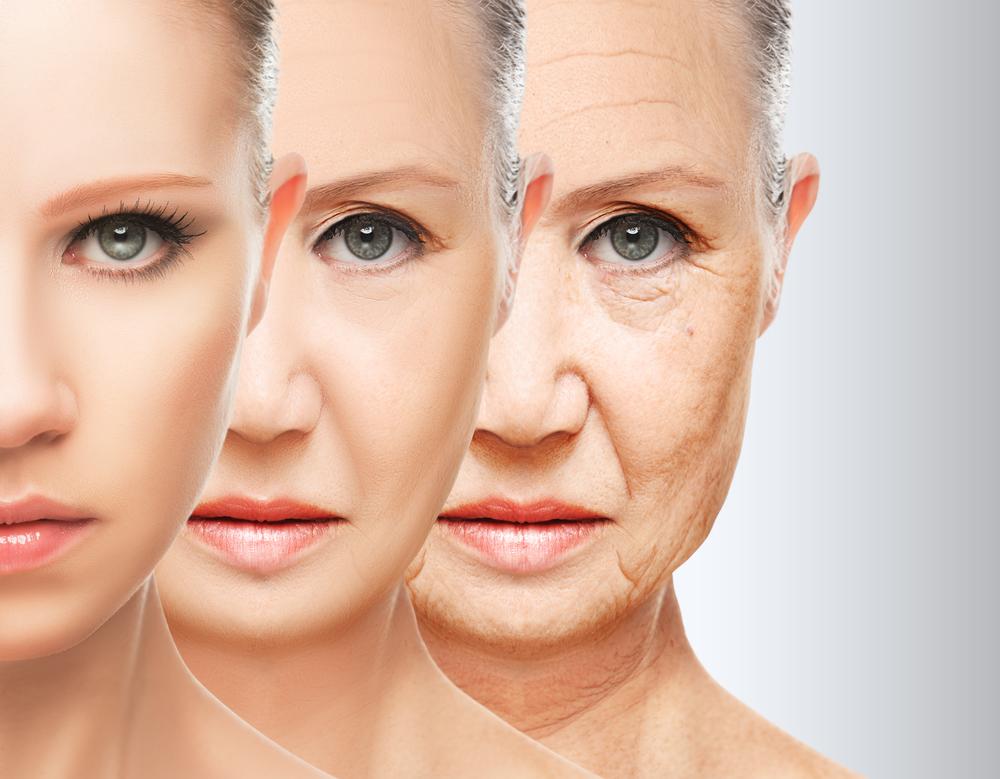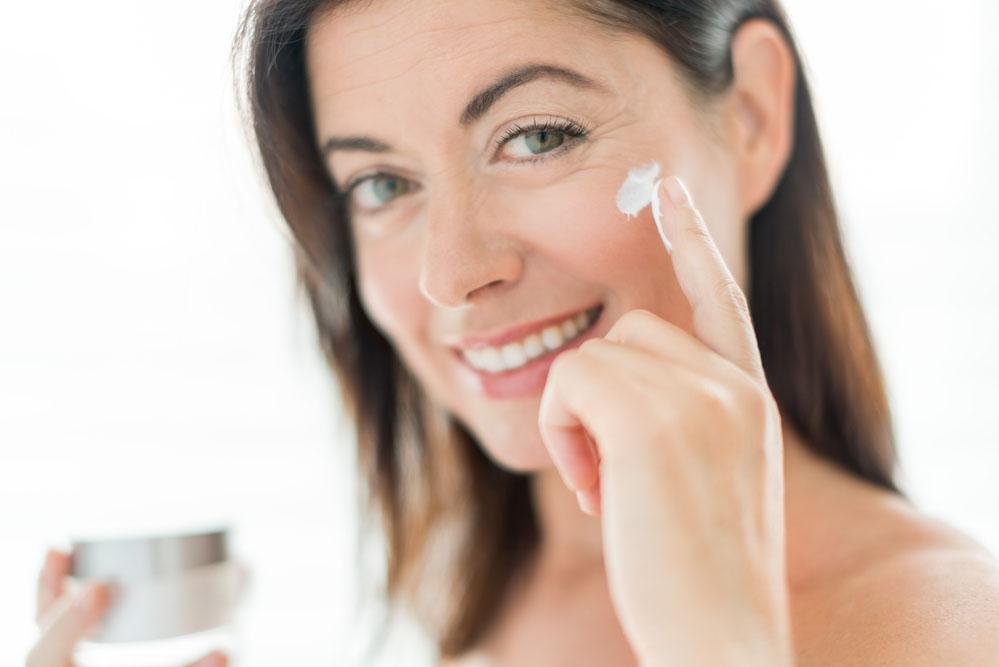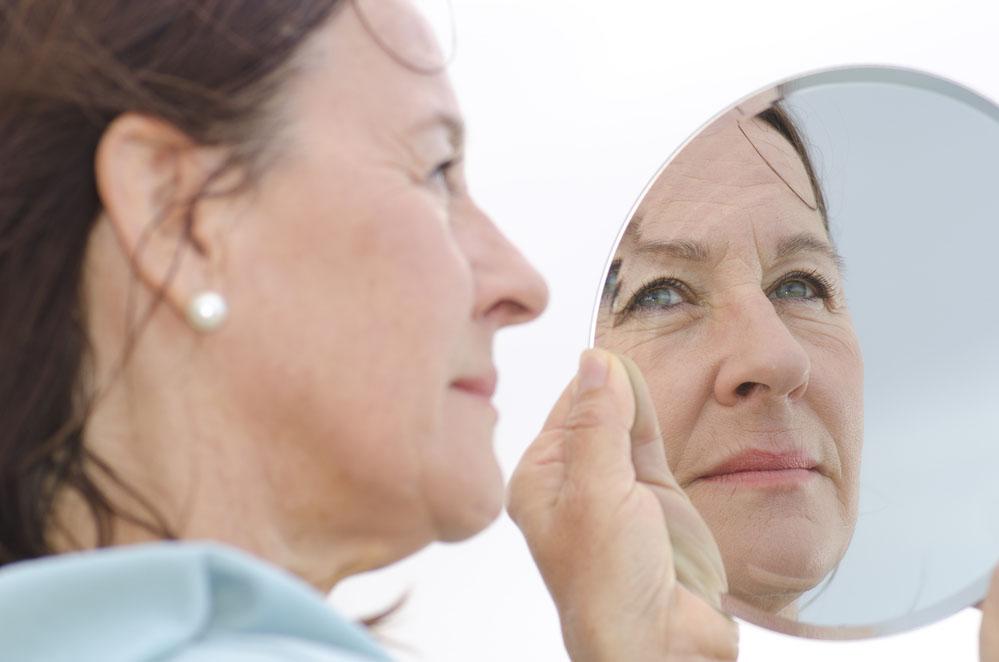
For many women, menopause is a very difficult period in life, therefore, even if you do not have this topic today, you may be struggling with the same problems in a few dozen years or so. However, if you think that the road to this is far away, read and share knowledge with your beloved mommy. Perhaps these are the problems they have to face today, help them in this difficult period, for whom, if not for our mothers, should be looked after not only from holidays, but all 365 days of the year.
During menopause, a real revolution begins once again in the female body. Unfortunately, it is associated with many difficulties, both those that will affect you physically, and those that will have an adverse effect on your psyche.
Hot flashes, depression, sleepless nights, problems with memory and concentration, blending with sweat, cold chills, palpitations or weight gain are just some of them, certainly some of you could significantly expand this list. All this begins to happen when the production of eggs and female hormones gradually stops in your ovaries. Inevitably, changes that take place in your body are also associated with complete loss of fertility. Unfortunately, many women mistakenly perceive this as a loss of femininity, which of course has a huge impact on their mental state. The changes in appearance that are associated with menopause are also a problem, this is a period that also affects the condition of your skin, then it begins to age faster, becomes dry, loses elasticity and firmness, and worse, it also has a tendency to appear all sorts of changes and diseases.
Today, a bit about what happens to your skin during menopause and how to help it get through this difficult period.
What is this really about?
Of course, hormones are behind everything, during menopause, when their level changes, the body begins to function completely differently. Skin problems and a clearly increasing rate of aging are primarily the fault of decreasing estrogen levels. The dynamics of cell division in all layers of the skin also decreases significantly, which in turn leads to their thinning and even disappearance. The synthesis of collagen, elastin, lipids, glycosaminoglycans and hyaluronic acid is also disturbed. The activity of fibroblasts, which produce much less collagen, elastin and ceramides, is also reduced. All this makes the skin dry and thin like tissue paper, its tension and elasticity decreases, it is more easily irritated, and on the surface eggs, discoloration furrows and wrinkles begin to appear. Disappearing adipose tissue, in turn, causes that the facial features change, then we say that its oval is disturbed. On the other hand, estrogen deficiency with a constant androgen level results in the appearance of excessive hair growth. In turn, disturbances in the functioning of melanocytes, and thus the production of melanin, make the skin lose its color, become as if transparent, and on its surface are visible brown discoloration. The problem is also a significant weakening of blood vessels, which during menopause more easily "break", forming a network of spider veins on the skin.
Dry and delicate
Hormonal disorders occurring in the women's body during menopause lead to changes in the skin's structure. It becomes dry and very delicate, which means that the processes related to aging gain momentum. Dear Lord, one thing is certain, we will not win with the passage of time, we can only alleviate the symptoms that are unpleasant for you and cause discomfort. Remember that the basis here is proper care, which, if it is done carefully before you enter the menopause, will mitigate its effects on your skin. Well-groomed skin ages much nicer, which makes the changes that time leaves on your face easier to love and perceive as part of your personal charm.
Under special supervision
Thin skin, practically devoid of a protective layer, is much more exposed to the harmful effects of UV rays. Wrinkles and discoloration appear more easily on it, which is why protecting it is a very important element of proper skin care during menopause. Filter cream should therefore become a must-have item for your beautician. It should be applied not only to the face, but also to the neck, neckline and hands, whose skin also feels the effects of menopause and, like the face, is exposed to sunlight every day. Remember also that your skin is exposed to UV radiation not only on sunny summer days, but throughout the year, even when the sky is tightly covered with clouds, to protect it, use cosmetics with a filter no less than SPF20 every day.
We clean but very gently
Careful cleansing of the skin is the basis of its care, it should be done every morning and evening. Remember to take care of make-up removal before leaving to sleep, leave makeup on delicate, thin skin, they will cause irritation, accelerate the formation of wrinkles and skin infections. You must remember that your skin is devoid of a lipid coat that protects it, so it is very important to choose cosmetics to its individual requirements and age. You should completely give up the use of water for washing your face, it will further dry and irritate your skin. Under no circumstances should you use antibacterial soaps, foams and gels, as well as cosmetics containing alcohol, dyes and fragrances. Decide on preparations in the form of milk or liquid, which will also have moisturizing properties.
Try enzymatic peels
As a result of hormonal disorders, skin regeneration processes are also slowed down, which is why peeling is also a very important element of care during this period. Performed regularly 1-2 times a week, it will clean the skin of dead epidermis accumulated on its surface, in addition oxygenates and stimulates its renewal. Remember, however, that such a peeling should be delicate, not damage or irritate thin, unprotected skin. Therefore, choose enzyme peels for mature skin. The enzymes contained in them exfoliate the epidermis without the need for friction, they also have the ability to penetrate deep into the skin, which in turn allows them to remove impurities accumulated deep in the pores. Remember, however, that the effects will not be visible immediately, this procedure must be performed systematically.
Choose the right cream
It is very important to choose the right cream for your age and skin type. During menopause, the skin needs really solid hydration and nutrition. There are also different cosmetics that you should use day and night. During the day, your skin needs primarily moisturizing and sun protection, while at night, it should support its regenerative processes, providing it with the necessary nutrients.
Creams intended for skin, which during the menopause begins to age due to disorders in the hormonal economy, increasingly contain phytoestrogens, i.e. compounds derived from plants that resemble natural female hormones - estrogens. Thanks to them, the skin will gain firmness and density more quickly, it will become more tense and moisturized, its color will also improve. Mature skin also needs creams that intensively not only oil it, but also moisturize it, replenish the missing ingredients, restore the protective lipid layer and retain moisture. in skin cells. Vegetable oils such as evening primrose, avocado, flax or blackcurrant are perfect here. The creams should also contain ceramides, squalene, unsaturated fatty acids, vitamins A, C, E, folic acid, coenzyme Q10, fruit acids and, of course, filters protecting the skin from the harmful effects of UV rays.

Power of masks
For the fact that the masks have a very good effect, you do not need to convince anyone, it is best to apply them to the skin immediately after peeling with an enzymatic peeling. Thoroughly purified, it will better absorb all valuable values. Masks, like other cosmetics, should be selected for the type of skin and the problems that affect it. You can support your skin by using masks that are highly moisturizing, anti-wrinkle, brightening and even strengthening delicate blood vessels. At home, you can prepare a pea mask to improve firmness and color. Just about 1/3 cup peas mash well and add 2 tablespoons of cream. A reliable component of homemade masks is avocado rich in vitamins and unsaturated fatty acids, which perfectly not only nourishes but also moisturizes the skin, you can add two teaspoons of lemon juice to it, which will have a brightening effect and two spoons of honey, which will enhance the moisturizing effect and nutrition. You can prepare an anti-wrinkle mask with half orange juice, 2 tablespoons ground cottage cheese and 2 tablespoons sunflower oil. Peaked skin will help peach mask, mix it into a paste, add egg yolk, a teaspoon of olive oil and a tablespoon of flour.
Stop the time with the hands of a specialist
Menopause is a time when your appearance changes quickly enough that in some cases home skin care methods become inadequate. Then it is worth going to the aesthetic medicine office and take advantage of many treatments that will help you regenerate, moisturize and nourish the skin, restoring its radiant healthy appearance. I am thinking, for example, of mesotherapy and platelet rich plasma injection or volumetric surgery modeling the oval of your face, by filling the defects formed with time, hyaluronic acid or fat taken from another part of the body.
Rosacea
Rosacea, often confused with ordinary acne, is something completely different. It may manifest as changes in the form of pustules, redness, chronic conjunctivitis or the so-called cauliflower nose. These changes often intensify during menopause. Therefore, you must remember that rosacea is a chronic disease and any symptoms that disturb you should be consulted as soon as possible with a dermatologist who will analyze your case and order therapy. The skin affected by rosacea requires special care, which is why the cosmetics you use cannot contain fragrances of dyes or alcohol, all of which can irritate the skin. Choose only those intended for sensitive skin, it will be best if you decide on professional pharmacy cosmetics. Under no circumstances can you subject your skin to friction and strong peeling, as this could worsen its condition and aggravate the changes. Avoid spicy foods, alcohol, sun exposure and sudden temperature changes. It is also worth using the knowledge and experience of a good aesthetic medicine specialist.
Discoloration
Pigmented lesions, called discolorations, occur when the production of melanin, the dark pigment of the skin and iris of the eyes, is disturbed. Factors activating this type of changes may be some medications, excessive exposure to the sun, acne, hypoadrenalism, liver disease, genetic predisposition or just hormonal changes, such as those that you face during menopause. So you must remember to provide your skin with permanent protection when using cosmetics with a high UV filter. Exfoliation of the skin is also a very important element of care, but pay attention to its special delicacy during this period and choose delicate enzyme peels. Using them twice a week will remove dead skin and gently reduce discoloration. It is worth applying dermocosmetic on well-cleansed skin, containing bleaching substances and regulating melanin production. You can also prepare a homemade mask, e.g. from grated green cucumber, two teaspoons of lemon juice and yogurt. However, you must know that home remedies, although very helpful, will not cope with discoloration. If you want to get rid of them or significantly reduce them, I encourage you to take advantage of aesthetic medicine treatments.

Please remember that menopause can cause a lot of problems and unfortunately you can't deal with all of them on your own. Today, however, there are many effective methods that will help you eliminate or significantly reduce the unpleasant symptoms that accompany it. Do not try to fight everyone on your own at all costs, sometimes it is really better to use the professional help of a doctor. Also take care of the right diet and find time for daily physical activity.
